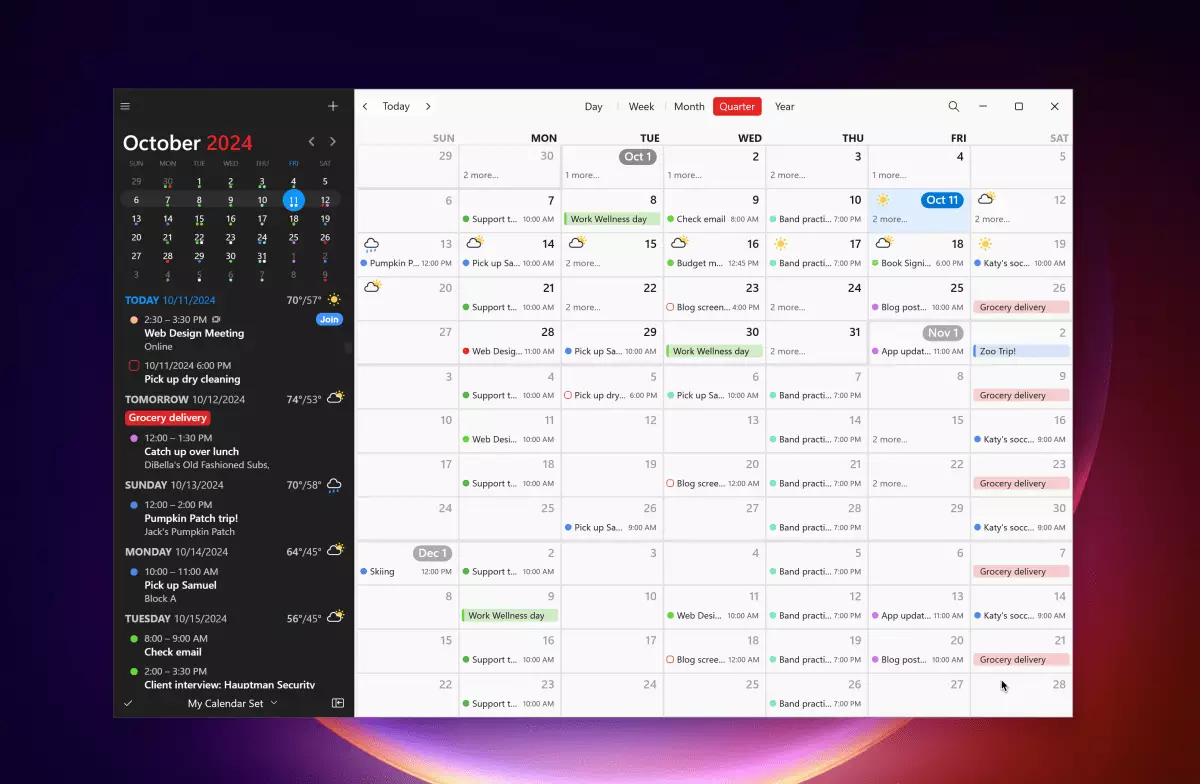In an era where app popularity is often akin to shooting stars—brilliant but temporary—some applications manage to maintain a steady trajectory. Fantastical, developed by Flexibits, exemplifies this phenomenon. Since its inception in 2011 as a Mac-only application, Fantastical has continually evolved, adapting to consumer needs and harnessing new technological advancements. This article delves into the key features and recent expansions of Fantastical, particularly its new foray into the Windows operating system.
The Longevity of a Niche App
While many calendar applications have come and gone, Fantastical has carved a niche for itself in the increasingly competitive calendar space. Initially designed for macOS, the app’s continuous updates have allowed it to stay relevant. Unlike fleeting calendar applications that are often acquired or abruptly pivot to different functionalities, Fantastical’s dedicated commitment to its user base has garnered a loyal following.
Flexibits’ approach is characterized by iterative improvements over the years. Co-founder Michael Simmons highlights that the latest release is the culmination of 13 years of advancements. This long-term vision has allowed Fantastical to establish itself not just as another app on the market but as an essential tool for productivity across multiple Apple platforms—iOS, macOS, and now Windows.
Cross-Platform Compatibility: A Game-Changer
The recent Windows launch marks a significant turning point for Fantastical. Historically, the company catered primarily to Apple users, but Simmons acknowledged a critical market segment that couldn’t access Fantastical due to platform limitations: Windows PC users. The strategic decision to expand into Windows is rooted not only in the desire to grow its user base but also in offering a unified experience for those who switch between operating systems.
The new version of Fantastical retains familiar functionalities, ensuring that existing users will feel comfortable right away. The seamless integration implies that users can merge various calendars—be it Google Workspace, Microsoft 365, or iCloud—into one cohesive interface. This feature is particularly valuable for professionals juggling multiple commitments, allowing for enhanced productivity.
Fantastical is not just about functionality; it prides itself on user experience. The app incorporates an intuitive interface that stands out in a crowded market. One of its signature features is “natural language input.” This allows users to type requests in a conversational manner, significantly streamlining the process of adding events. For example, typing “Lunch with Tim Cook on Tuesday at Caffè Macs” will automatically set an event, making scheduling less of a chore and more efficient.
Moreover, Fantastical caters to advanced users with features reminiscent of scheduling applications like Calendly. The “Openings” functionality lets users create event links complete with RSVP capabilities, making it particularly useful for social gatherings or business meetings. Additionally, the app simplifies participation in conference calls by detecting relevant links within calendar invites, offering a one-click option to join.
While the app is available for download at no cost, Fantastical operates on a subscription model to unlock premium features. Currently priced at $4.75 per month with annual billing, the premium subscription includes access to exclusive functionalities not only on Windows but across all platforms. This pricing structure reinforces the notion that quality comes at a cost, and Fantastical’s capabilities indeed justify the investment for dedicated users.
However, the question remains: will Flexibits venture into the Android market? Simmons has expressed hesitations about this possibility. The complex dynamics between Google and indie developers raise legitimate concerns. Recent trends suggest that many high-quality applications find it increasingly difficult to maintain their presence on the Android platform due to restrictive requirements and high costs associated with compliance.
Fantastical’s resilience in a shifting technological landscape is a testament to its adaptability and user-first approach. With its recent expansion into the Windows ecosystem, the app not only caters to a broader audience but also ensures user continuity across different devices. As more professionals navigate between macOS and Windows, Fantastical serves as a vital tool for productivity. While the future of the app may entail challenges—particularly regarding market competition and platform constraints—its commitment to consistent updates and feature-rich experiences positions it favorably in an ever-evolving app marketplace. The narrative of Fantastical is one of sustained relevance, building on a legacy of innovation while keeping user needs at the forefront.

